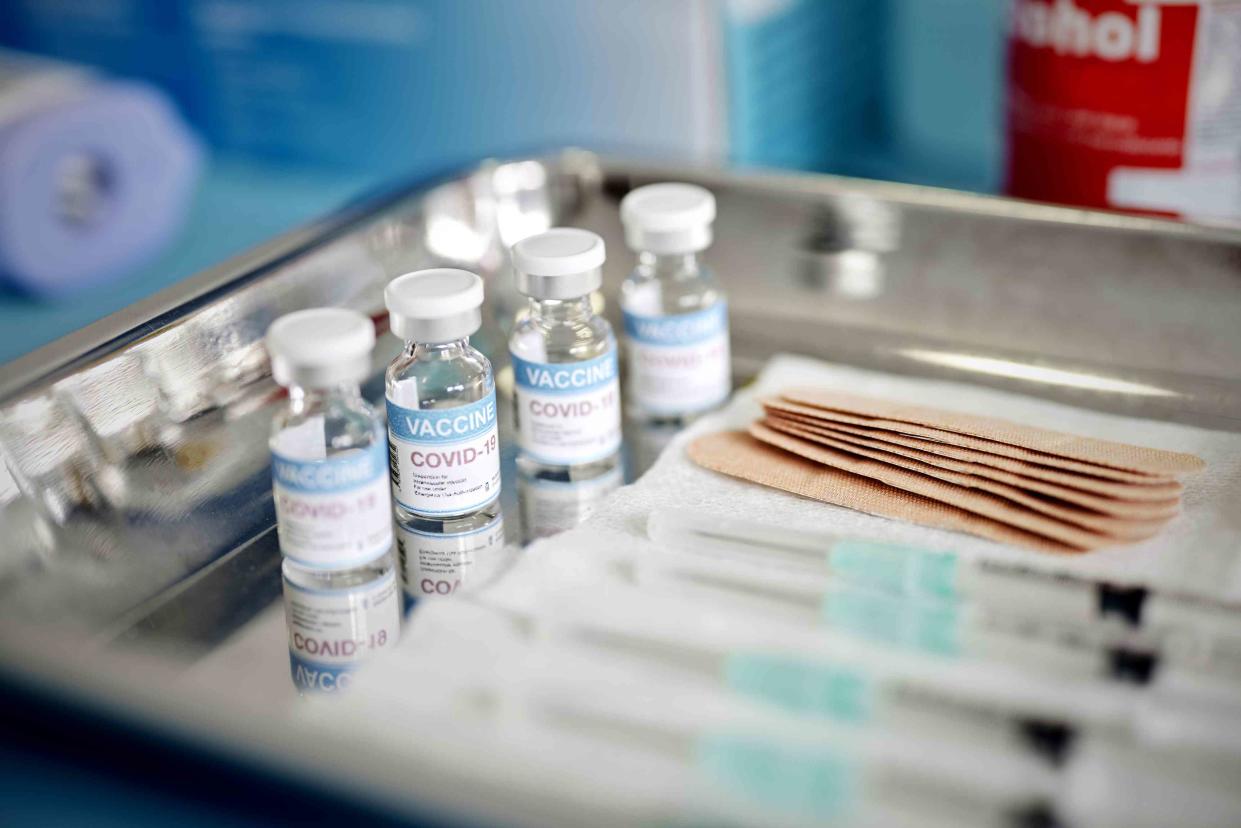The FDA Now Wants Fall COVID Vaccines to Target KP.2—But Not All Manufacturers Can Pivot

Morsa Images / Getty Images
Fact checked by Nick BlackmerFact checked by Nick Blackmer
Key Takeaways
The FDA recently updated its recommendations to COVID-19 vaccine manufacturers to make the KP.2 variant the target of fall vaccines, if feasible. Just a week before, the agency recommended the JN.1 variant.
Pfizer and Moderna, whose mRNA vaccines are easy to update, say their shots will target the KP.2 variant.
Novavax, which makes a protein-based vaccine, will not be able to update its formula.
Less than a week after telling COVID-19 vaccine manufacturers to target the JN.1 variant this fall, the Food and Drug Administration (FDA) reversed course.
The FDA is now asking vaccine manufacturers Pfizer, Moderna, and Novavax to target an offshoot of JN.1, called KP.2, instead—“if feasible.” The shift comes six days after the agency took the advice of its advisory panel and announced early fall vaccines should target JN.1.
While that advisory committee did discuss the emergence of KP.2 before the initial FDA decision to target JN.1, it concluded that the JN.1 vaccines already in development should be sufficient. That was in part to accommodate Novavax, who indicated it wouldn’t be able to pivot to KP.2 for an early fall vaccine rollout. Experts like epidemiologist Katelyn Jetelina, PhD, MPH, believe a vaccine option like Novavax, which doesn’t use mRNA technology like Pfizer and Moderna, is important to offer alongside mRNA vaccines for better uptake. That’s because some people are wary of the newness of mRNA technology. Plus, unlike the mRNA vaccines, the Novavax vaccine does not include an ingredient called PEG, which a small number of people are allergic to.
Moderna and Pfizer told Verywell in emails that they would be able to comply with the newest FDA request. In a statement, Novavax implied their planned JN.1 vaccine should still do the trick, indicating it’s not possible to update the vaccine platform in time: “Novavax's JN.1 vaccine has demonstrated broad cross-neutralizing antibodies against multiple variant strains, including KP.2”
Related: Is a Summer COVID Booster Worth It?
Is KP.2 the Right Choice?
Even if Pfizer and Moderna produce KP.2 vaccines in the coming months, that doesn’t guarantee the vaccine will keep pace with COVID, which is constantly mutating. The FDA said that the agency will continue to monitor the safety and effectiveness of the COVID-19 vaccines.
“If a markedly more virulent variant occurs that results in more morbidity or mortality, the agency could consider recommending a change in vaccine composition at any time,” an FDA spokesperson told Verywell. “Although it is true that protein-based vaccines [such as Novavax] currently take longer to manufacture, most COVID-19 vaccines administered in the U.S. have been mRNA-based, and these products could potentially be manufactured relatively quickly.”
What Happens Next?
An advisory committee to the Centers for Disease Control and Prevention (CDC) will determine who should actually get an updated COVID vaccine late next week. While COVID doesn’t have a typical “season” like flu does, it still tends to mutate and spread easily when people are in close quarters during the winter. Therefore, the CDC has begun recommending an annually-updated vaccine, especially for people at risk of severe COVID, each fall.
Once the CDC makes its recommendations, people who are eligible for another shot should ask their doctors or pharmacists about which vaccine brand is best for them.
Amesh Adalja, MD, senior scholar at the Johns Hopkins Center for Health Security, suspects a Novavax vaccine that lags behind other options will have the lowest uptake, even though “targeting JN.1 still offers cross-protection, because these variants are all very similar.”
No matter what you choose, though, “when it comes to protection against severe disease, any of the vaccines, including ones against outdated variants, confer that protection,” he added. “It will be important to look at the actual efficacy numbers [for Novavax], but I suspect that it would probably be much better than not getting an updated vaccine if you’re in a high-risk group.”
What This Means For You
A CDC advisory committee will meet next week to determine who should get the vaccine. Your doctor or pharmacist can tell you whether an updated COVID vaccine—and which one—is recommended for you.
The information in this article is current as of the date listed, which means newer information may be available when you read this. For the most recent updates on COVID-19, visit our coronavirus news page.
Read the original article on Verywell Health.

